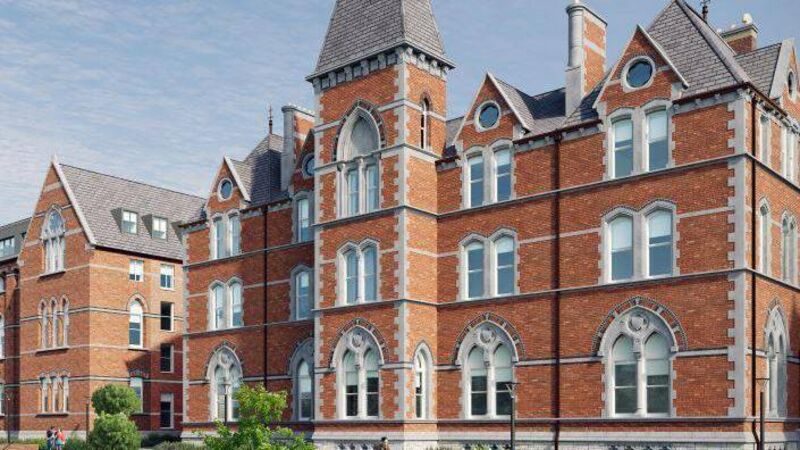Magdalene survivors unhappy with plan for Cork site

Artist impression of 950-bed student accommodation development at the long-derelict Good Shepherd Convent in Cork City
A group representing Magdalene survivors has claimed An Coimisiún Pleanála failed to address its concerns before allowing planning permission for a massive student accommodation development on the site of a former Magdalene laundry in Cork city.
Last week, An Coimisiún Pleanála upheld a decision by Cork City Council to grant planning for a 957-bed development for student accommodation at the former Good Shepherd Magdalene laundry, industrial school, and convent in Sunday’s Well.
Survivor group Justice For Magdalenes Research (JFMR) had asked that multiple conditions be attached to planning, including a forensic, victim-centred archaeological search of the site for human remains.
Despite this, the planning board upheld permission for the partial demolition, conservation redevelopment, and extension of the existing former Good Shepherd convent buildings for student accommodation use.
The approved development by Bellmount Good Shepherd Limited — which is owned by developer brothers Pádraig and Séamus Kelleher — comprises 274 student apartments, with 957 beds.
The Good Shepherd convent was established in 1870 and operated by the Good Shepherd Sisters until 1977.
It also served as a Magdalene laundry, orphanage, and industrial school, with thousands of women and children held there over the years. Burial records show that at least 188 women died there.
There are 110 nuns buried in a graveyard on the eastern side of the site, which is also the final resting place of Ellen Organ, a four-year-old venerated as ‘Little Nellie of Holy God’ since her death in the orphanage in 1908.
High up in an almost inaccessible corner on the north-western end of the former convent site, in an area beyond the planned development, a vandalised stone cross bears the names of 30 women.
They were inmates in the Magdalene laundry and are believed to be buried in a mass grave on the site. However, three of the women named on the headstone are also listed as being buried at St Joseph’s Cemetery.
'DEEPLY CONCERNED'
JFMR has said it was “deeply concerned” that the planning body had “declined to address” recommendations set out in a submission the group made to the commission.
Among those recommendations, JFMR had said there was an “urgent need to repair, maintain, and provide access to the Magdalene graveyard adjacent to the development”, saying the development as proposed would leave it “in its current state of inaccessibility and neglect, thereby perpetuating the marginalisation of the women and girls interred there”.
The group further cited the inaccuracies on the graveyard headstone, as well as “the question of potential undocumented burials at the site, and the positive obligation to conduct research to ascertain how many women and children died at Sunday’s Well, and where they are buried”.
JFMR stressed the importance of ensuring active memorialisation and acknowledgement of those who had suffered human rights abuses at Sunday’s Well, describing a memorial plan proposed in the development as “unethical and insensitive, since it links the commemorative space with the burial site of members of the religious order responsible for abuses”.
The group said none of its concerns had been addressed by the planning board.
JFMR urged the developer to take survivors’ concerns into account and to engage with the Government’s special advocate for survivors “to ensure meaningful consultation with affected people”.
An Coimisiún Pleanála and Bellmount Developments have been asked for comment.










 App?
App?


